Are Bitcoin Payments About to Explode?
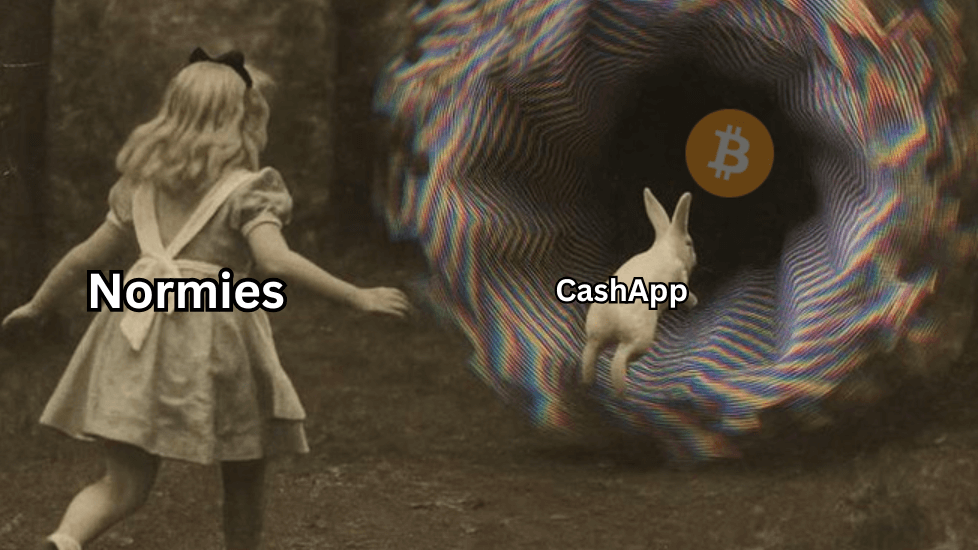
In this article:
It can be a tedious task writing about multinational organizations adopting Bitcoin. All it typically means is that some corporate entity somewhere intends to buy it, sit on it, and use it to pump their stock.
There’s nothing wrong with that of course, it was always going to happen. It’s just not particularly exciting, and the claims that it “drives adoption” are a stretch. People buying paper IOUs aren’t really adopting anything.

Thankfully, this week there’s some news about institutional Bitcoin adoption that is interesting! Jack Dorsey’s company Block (formerly Square) just announced the rollout of global Bitcoin payments to the millions of businesses using their platform!
That’s some serious orange pilling. It’s no easy task convincing businesses to accept Bitcoin as payment. But with this move, Block has made accepting Bitcoin at the point of sale accessible to millions of businesses practically overnight.

It’s no surprise that Jack would lead an initiative like this. He has been more involved in Bitcoin than most people realize over the years. He publicly called Bitcoin an “amazing movement” over a decade ago, and since then has woven Bitcoin into the fabric of both his companies and his investments.
In 2017, Square’s Cash App was one of the first mainstream platforms that allowed users to buy and sell Bitcoin, introducing it to millions of people who had never interacted with it before, and by 2020 Square had allocated $50 million (around 1%) of its balance sheet into Bitcoin.
(Most people think Michael Saylor was the pioneer of Bitcoin treasuries. He wasn’t.)
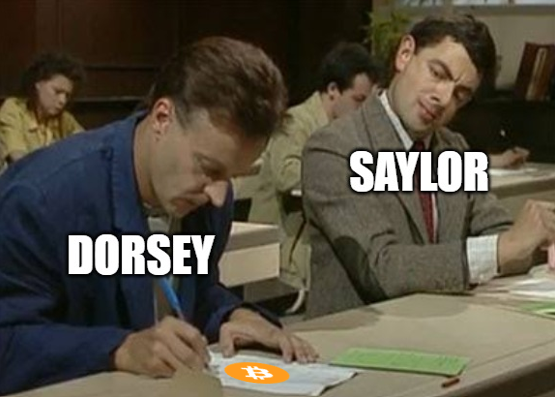
Jack’s involvement in Bitcoin also extends to supporting some important projects in the space. He provided funding toward the Lightning Network and in 2023 also invested in Ocean, a decentralized Bitcoin mining pool aimed at distributing mining power more equitably and reducing centralization risks.
Dorsey has consistently argued that Bitcoin represents the “only way out” of our flawed fiat system, and Square’s latest move signifies a continued commitment to pushing Bitcoin’s adoption forward.
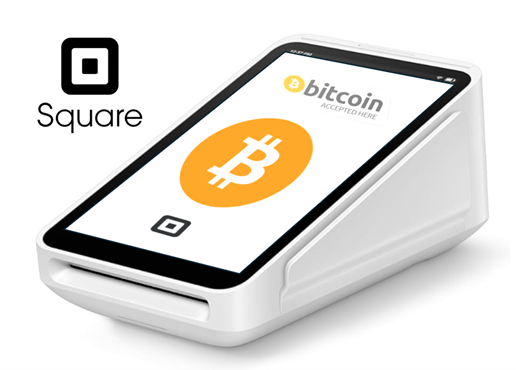
If, like us, you believe that Bitcoin is NOT a speculative investment, then developments like this are hard not to get excited about. So let’s explore in more depth what Square’s rollout of Bitcoin payments looks like and what it might mean for Bitcoiners, merchants, and the growing Bitcoin circular economy.
What's The Block’s Size?
We hear about “BREAKING NEWS” so frequently on Bitcoin Twitter that the words have almost lost all meaning.
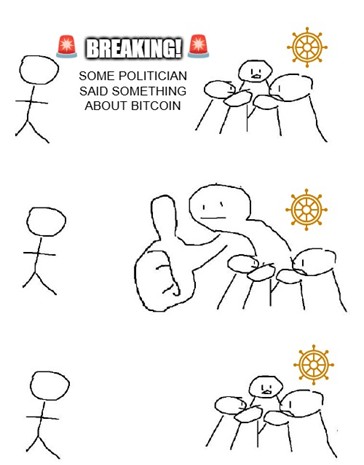
So, will this news from Block turn out to be just another nothing burger?
It seems unlikely.
Block is a serious player in the payments industry processing billions of dollars in transaction volumes every year. Their ecosystem boasts over 57 million active users and more than 4 million merchants ranging from small coffee shops to large retailers who rely on their payment infrastructure.
Block’s business is mainly focused on the North American market, with about 80% of their business being generated in the U.S. and Canada, but the company does have growing footprints in Europe, Australia, Japan, and emerging markets as well. Currently their payment solutions are available in over 10 countries, and their international expansion is accelerating. Australia now boasts over 200,000 sellers, and the U.K. has seen a 50% increase in merchant adoption over the past two years.
In terms of sheer scale, Block processed a staggering $241 billion in gross payment volume (GPV) in 2024, a metric that captures the total value of transactions flowing through its systems. To put that in context, that’s roughly equivalent to the GDP of Portugal or New Zealand!
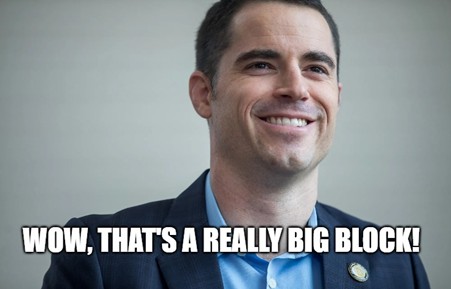
In terms of merchants, Block’s 4 million sellers process an average of $60,000 in GPV each year, which shows that despite Block processing an enormous amount in payments, 90% of this volume comes from merchants that are small businesses with fewer than 10 employees.
This is interesting, because despite Block being somewhat of a behemoth, the merchants they serve are smaller businesses that are often underserved by traditional banks. By accepting payments via the Lightning Network these merchants can now collectively save millions in fees compared to the 2–3% charges they suffer via credit card payments.
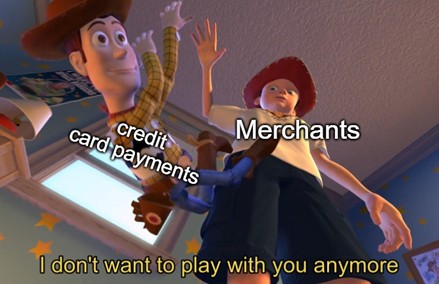
Avoiding credit card transaction fees is a compelling incentive for these merchants that contributes directly to their bottom line. It will be interesting to see whether this incentive results in them offering better deals to people who choose to pay with Bitcoin. If it does, then this could expose millions of consumers globally to Bitcoin payments and give them a real incentive to switch.
Block Bitcoin Payments – How Does It Work?
Block’s Bitcoin integration operates through its existing Square point-of-sale platform, which means merchants already using their services don’t need any additional hardware or software to get started. As soon as they want to start accepting Bitcoin, all they need to do is enable the feature in their settings.
The platform will support in-person payments up to $600 per transaction initially, with plans to expand to online purchases and e-invoices soon. Merchants can choose to keep the payments they receive in Bitcoin or automatically convert them to USD, all managed through their existing Square dashboard.
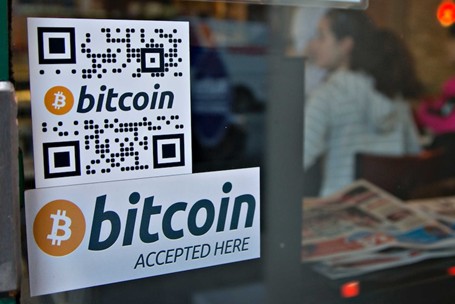
Block are also sweetening the deal for merchants with zero processing fees until Jan 1st, 2027, after which they will impose a modest 1% fee, which still heavily undercuts most credit card processing fees.
The benefits for retailers are compelling. Faster settlements improve cash flow, so businesses can reinvest sooner without waiting on banks. No chargebacks mean reduced fraud losses, a common headache costing merchants billions a year. Lower fees mean higher margins, and accepting Bitcoin opens doors to a new customer base, potentially increasing foot traffic and sales volume.
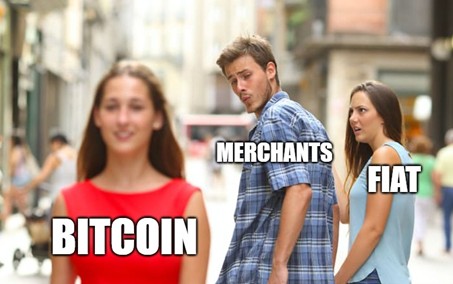
One particularly interesting development from Square is that they have also enabled all their 58 million Cash App users to pay in Bitcoin, even if they don’t own any!
What this means in practical terms is that merchants can prioritize accepting Bitcoin as payment, even when their customers aren’t Bitcoin users yet. It allows merchants to have all the benefits of receiving Bitcoin payments (no fees and no chargebacks), while their customers don’t have to incur a taxable event because they can pay Bitcoin Lightning invoices with their USD balance.
It’s a workaround for sure, and it’s not exactly the sovereign peer-to-peer experience that Bitcoin promises, but it’s a stepping stone in the right direction. Exposing millions of late adopters to Bitcoin will demonstrate to them that Bitcoin is a viable currency and payment method. If we’re lucky, it might just be the cue they need to start venturing further down the rabbit hole.
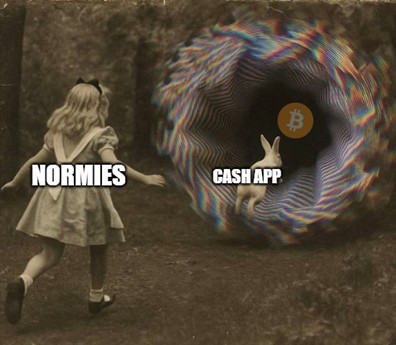
Bitcoin – The New Kid on the Block
Bitcoin is certainly the “new kid on the Block” for Square’s payment platform, but this shouldn’t distract us from the truth, which is that Bitcoin payments have been available to everyone, everywhere, for the past 12 years.
Bitcoin has always been a viable payments network, and if you’re a merchant who wants to accept Bitcoin payments, nothing is stopping you. You can create your own wallets, run your own node, manage your own Lightning infrastructure, and even run your own payment channels. There is no permission required, and unlike with Square there will be zero third-party transaction fees forever!
Bitcoin is peer-to-peer electronic cash. No middlemen required.
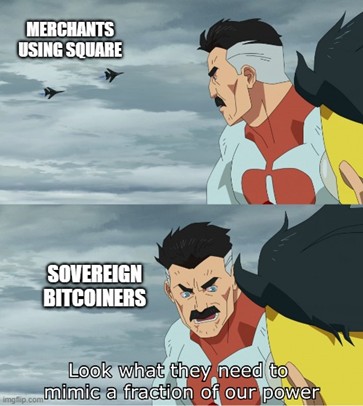
Nevertheless, not everybody is ready to become fully sovereign just yet, and Square’s new integration does give millions of customers and merchants their first gentle introduction into the Bitcoin ecosystem.
What’s pleasing about this news is that it positions Bitcoin as a medium of exchange that can rival fiat for day-to-day payments. It’s a refreshing change from the narratives being pushed by tradfi bros who promote Bitcoin as just a speculative investment or store of value so they can shill their paper IOUs.
Encouraging merchant adoption injects Bitcoin payments directly into commerce, promotes spending, exposes new people to the ecosystem, and does far more to help Bitcoin adoption than simply framing it as “digital gold.”
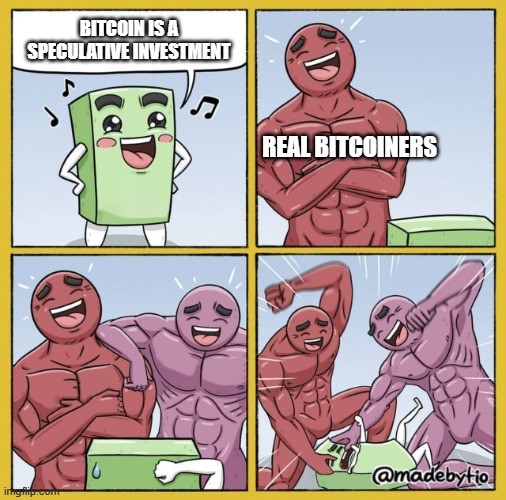
So, would we ever use Square’s infrastructure to accept Bitcoin payments at The Bitcoin Way? No. We run our own infrastructure because Bitcoin means we don’t need to rely on third parties to run our business and accept Bitcoin as payment.
All the same, Block’s recent move might indicate that we are at a turning point where adoption and use of Bitcoin as money starts to accelerate exponentially.
Prepare for a Bitcoin Standard – The Bitcoin Way
If you’re already one of our clients, you’re already way ahead of the pack. Your Bitcoin is secure in 100% full custody with zero counterparty risk, you run your own node, and you don’t need to rely on any third parties or anyone else’s infrastructure to send and receive payments.
While the rest of the world is still catching up, you’re already well prepared for life on a Bitcoin standard.
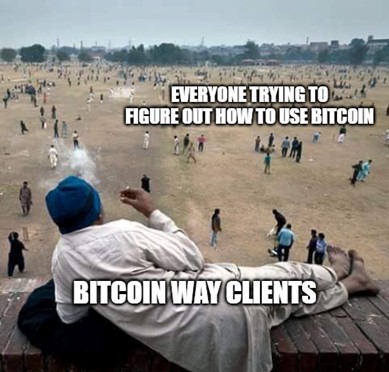
If, however, you’re still at the start of your journey, but can see where the world is headed, it’s time to get prepared now. You need to learn the skills required to navigate a Bitcoin powered world safely and securely before you get left behind.
We can help you with that. In just a few sessions our experts will make sure you know how to secure your Bitcoin properly, run your own node, and transact without ever having to ask permission again. All you need to do is book a free 30-minute consultation to get your training started.
